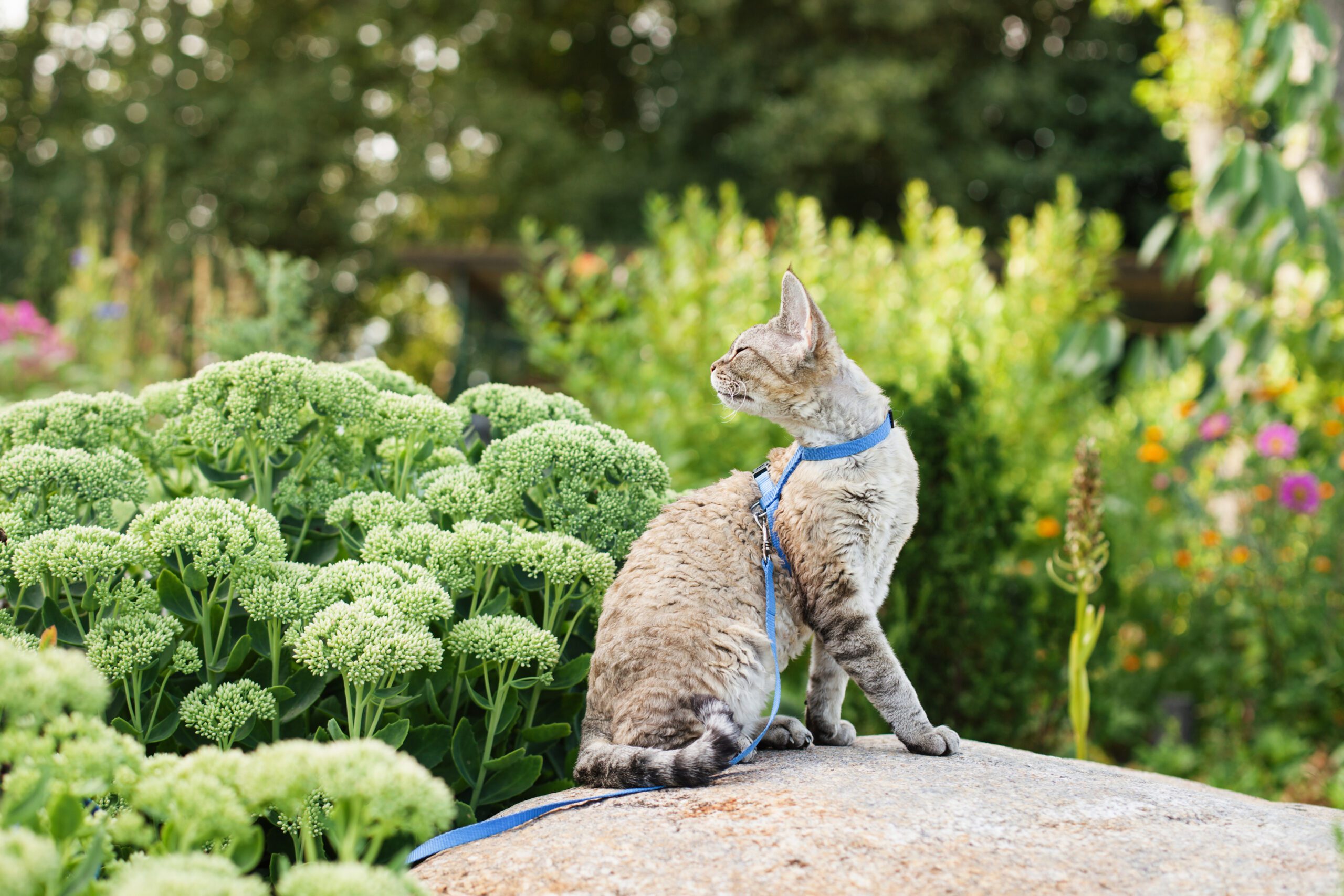
Springtime Safety Tips for Pet Owners
Springtime is a season of renewal and growth, but it also brings with it a number of hazards for our furry friends. Whether inside or outside, pets need to be protected from added potential dangers during spring. In this blog, we’ll take a look at common indoor and outdoor pet safety hazards, springtime safety tips and more.
Indoor Hazards
Indoors, spring cleaning may bring out toxic chemicals and substances that can be harmful to pets. Cleaners, pesticides, and other household chemicals should be kept out of reach and used with caution. Also, it’s a good idea to use natural, pet-safe alternatives whenever possible. Additionally, plants that are toxic to pets, such as lilies and daffodils, should be kept out of reach or avoided altogether. Several basic household products can be hazardous to pets if not used or stored properly. Some examples include:
- Alcohol: Alcohol can be toxic to pets and can cause vomiting, diarrhea, and even coma or death if ingested in large amounts.
- Ammonia: A common ingredient in many cleaning products, it can irritate the eyes, nose, and respiratory system if inhaled. It can also be toxic if ingested.
- Antifreeze: Antifreeze is highly toxic to pets and can cause kidney failure if ingested.
- Bleach: This powerful cleaning agent can cause serious health problems if pets ingest, including chemical burns and vomiting.
- Drain cleaners: These products contain harsh chemicals that can cause chemical burns, vomiting, and even death if ingested by pets.
- Furniture polish: Many furniture polishes contain chemicals that can cause respiratory problems if inhaled and be toxic if ingested.
- Laundry detergents: Some laundry detergents contain strong chemicals that can cause skin and eye irritation and respiratory problems if inhaled. Ingestion can also cause upset stomach and vomiting.
- Medications: Many over-the-counter and prescription medications can be toxic to pets if ingested. Some of these can include pain relievers, cold and flu medications, and antidepressants.
- Oven cleaners: Oven cleaners contain strong chemicals that can cause serious health problems if ingested or inhaled by pets.
- Pesticides: Pesticides, including insecticides and rodenticides, can be very dangerous to pets if ingested. These products can cause a wide range of symptoms, from vomiting and diarrhea to seizures and death.
- Plants: Some common household plants can be toxic to pets if ingested. These include lilies, which can be fatal to cats, and sago palms, which can cause liver failure in dogs.
Airborne Hazards & Allergens
Springtime in Arizona means different fruits and veggies are in season, as well as various plants blooming. Yes, it’s true – pets can have allergies too. Common allergies for pets include various foods, pollen, plants, and even dust. Just like their human counterparts, your furry friend’s allergy symptoms can range from mild to severe. Mild symptoms can include sniffling or wheezing, while severe symptoms can be as life-threatening as anaphylactic shock. Watch your pets for signs of allergies so you can take the necessary steps to keep them safe, happy, and healthy. If you have questions about allergies, talk with your vet.
Outdoor Pet Hazards
Outdoors, spring brings new plants and flowers that can be toxic to pets. Common spring plants such as tulips, daffodils, and crocuses can cause vomiting, diarrhea, and even death if pets ingest. Keep an eye on your pets when they are outside and supervise them when they are in areas with these plants. Also, be aware of lawn care products such as fertilizers and pesticides, which can also be toxic to pets if ingested.
Spring is also when many pet owners like to take their pets on walks and hikes. However, it is important to know that warmer weather can lead to overheating and dehydration in pets. Be sure to provide plenty of water and take frequent breaks during walks and hikes. Also, be mindful of the surface your pets are walking on, as hot pavement can burn their paws.
Seasonal Critters
Humans aren’t the only ones who enjoy the springtime – this warmer season also brings out a variety of critters that also enjoy basking in the sunshine. As Arizonans know, this time of year draws out snakes from their cozy hibernation quarters underground. While not all snakes are dangerous, pet owners need to be prepared for Arizona’s rattlesnake season. An encounter with one of these creatures can be deadly for your furry friend. Always be aware of your surroundings and where you step while on walks or hiking with your beloved pet.
Along with snakes, the warm weather also brings out an abundance of bugs – including mosquitoes. To help keep your pet safe, be sure to maintain your furry friend’s heartworm-preventative medicine and be aware of the early signs of heartworm disease in dogs and cats.
Remember, being outside and going on walks increases your pet’s chances of having bugs hitch a ride on them – including fleas and ticks. On top of using medications prescribed by your vet to help prevent fleas and ticks, be sure to regularly check your pup’s body for these critters after being outside.
In closing, springtime is a beautiful time of year, but it’s important to be aware of the hazards that can affect our pets. We can keep our furry friends safe and healthy by being aware of these hazards and taking the necessary precautions to ensure their safety and well-being during this most beautiful time of year.
Is your pet up to date on all vaccinations? Has your pet had a new year wellness check? If not, schedule an appointment today. Visit AZPetVet.com/locations to find a location near you!
KEEP THESE RESOURCES HANDY
ASPCA Animal Poison Control Center
(888) 426-4435.
Arizona Poison and Drug Information Center
(800) 222-1222

